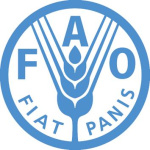- Industrie: Agriculture
- Number of terms: 87409
- Number of blossaries: 0
- Company Profile:
Established in October 1945 with the objective of eliminating hunger and improving nutrition and standards of living by increasing agricultural productivity, FAO coordinates the efforts of governments and technical agencies in programs for developing agriculture, forestry, fisheries, and land and ...
One of the biotechnology-based methods for discovering conventional drugs. The method relies on the fact that many drugs act by binding to specific proteins (receptors) on or in cells: these proteins usually bind to hormones or to other cells, and control the cell's behaviour, although they may be enzymes or structural elements of the cell. The drug interferes with the normal role of the protein.
Industry:Biology
A group of enzymes that catalyse the cleavage of nucleotides in RNA and degrade it into smaller components. Ribonucleases can be divided into endoribonucleases and exoribonucleases, and comprise several sub-classes within the EC 2.7 (for the phosphorolytic enzymes) and 3.1 (for the hydrolytic enzymes) classes of enzymes.
Industry:Biotechnology
A short DNA sequence that is present as tandem repeats and in highly variable copy number.
Industry:Biotechnology
An organic acid composed of repeating nucleotide units of adenine, guanine, cytosine and uracil, whose ribose components are linked by phospho-diester bonds. The information-carrying material in some viruses. More generally, a molecule derived from DNA by transcription that may carry information (messenger RNA (mRNA)), provide sub-cellular structure (ribosomal RNA (rRNA)), transport amino acids (transfer RNA (tRNA)) or facilitate the biochemical modification of itself or other RNA molecules.
Industry:Biotechnology
An organic compound with the formula CH<sub>3</sub>(CH<sub>2</sub>)<sub>11</sub>OSO<sub>3</sub>Na. It is an anionic surfactant used in many cleaning and hygiene products. The salt is of an organosulfate consisting of a 12-carbon tail attached to a sulfate group, giving the material the amphiphilic properties required of a detergent. SDS is derived from inexpensive coconut and palm oils, and is a common component of many domestic cleaning products.
Industry:Biotechnology
In animals, an early embryo form that follows the morula stage; typically, a single-layered sheet (blastoderm) or ball of cells (blastocyst).
Industry:Biotechnology
In baculovirus expression systems, the procedure by which the baculovirus and the transfer vector are simultaneously introduced into insect cells in culture.
Industry:Biotechnology
In biennials and perennials, cambium giving rise to secondary phloem and secondary xylem.
Industry:Biotechnology
In biology, each species is generally identified by two terms: the first is the genus to which it belongs, and the second is the specific epithet that distinguishes it from others in that genus (e.g., <i>Quercus suber</i>, cork oak). The genus name always has an initial capital; the specific epithet is never capitalized, even though it may be derived from a proper name (e.g., keranda nut, <i>Elaeocarpus bancroftii</i>). Both terms in the binomial are italicized. Based on the system of classification developed by Carolus Linnaeus.
Industry:Biotechnology
In biotechnology: a uniform and uninterrupted layer of bacterial growth, in which individual colonies cannot be observed.
Industry:Biotechnology
